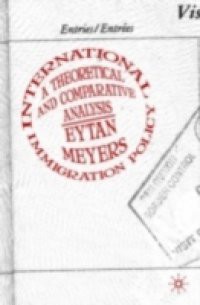Immigration control policy is a burning issue in the domestic sphere and on the international scene. This book offers a theory of international immigration policy, based on an analysis of immigration policies in the United States, Britain, Germany and the Netherlands. It explains how governments decide on the number of immigrants they will accept, whether to differentiate between various ethnic groups, whether to accept refugees and on what basis, and whether to favor permanent immigration over migrant workers. The book demonstrates how the interaction between socioeconomic trends, foreign policy considerations and the type of immigration shapes immigration control policies, and it evaluates the relative importance of each of these factors.

